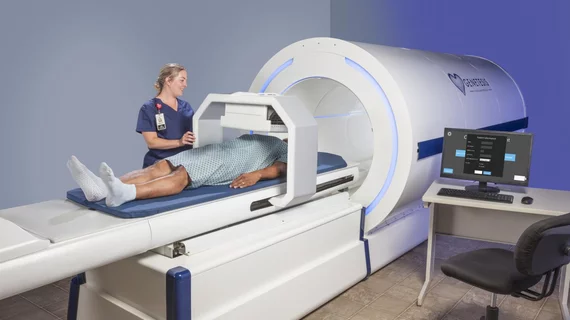90 second scan analyzes emergency department chest pain
A resting 90-second magnetocardiography scan may help clinicians better evaluate chest pain in the emergency department, according to a new pilot study.
Researchers from Ascension St. John Hospital in Detroit found the modality could detect coronary artery stenosis similarly to more traditional modalities. Although further testing is needed, the approach may help diagnose patients who require additional monitoring, and in most cases, increased hospital resources, they wrote Jan. 30 in the journal IJC Heart & Vasculature.
“Instead of an extended, often overnight stay in the ED or observation unit due to limited availability of cardiac testing, MCG would be completed within minutes and could potentially be performed 24 hours per day,” Margarita E. Pena, MD, with the hospital’s emergency medicine department, and colleagues wrote.
The magnetocardiography system tested in this study, called Cardioflux, was developed by Mason, Ohio-based Genetesis, a medical tech company focused on novel cardiovascular imaging approaches. Past clinical studies have found that MCG is more sensitive in detecting acute and myocardial ischemia compared to echocardiography, but there is limited research into the novel modality's effectiveness in lower-risk patients who present in emergent situations.
Pena and colleagues set out to test the device in assessing coronary artery stenosis among non-high-risk ED and observation unit patients compared to more conventional methodologies.
More than 100 patients with chest pain underwent stress testing and/or coronary angiography over a one-year period. Those patients also received a 90-second MCG scan. The CardioFlux system was comparable to both modalities, with a specificity of 78.3% and negative predictive value of 92.3%.
"While previous studies of magnetocardiography have yielded promise in the detection of coronary artery disease, this is the first time a scalable iteration of this technology has been made available to emergency medicine in their difficult task of diagnosing acute coronary syndrome," Alisa Niksch, MD, Genetesis Chief Medical Officer, said in a statement. "This data has given Genetesis the momentum to expand research into other populations at risk for ischemic heart disease."

